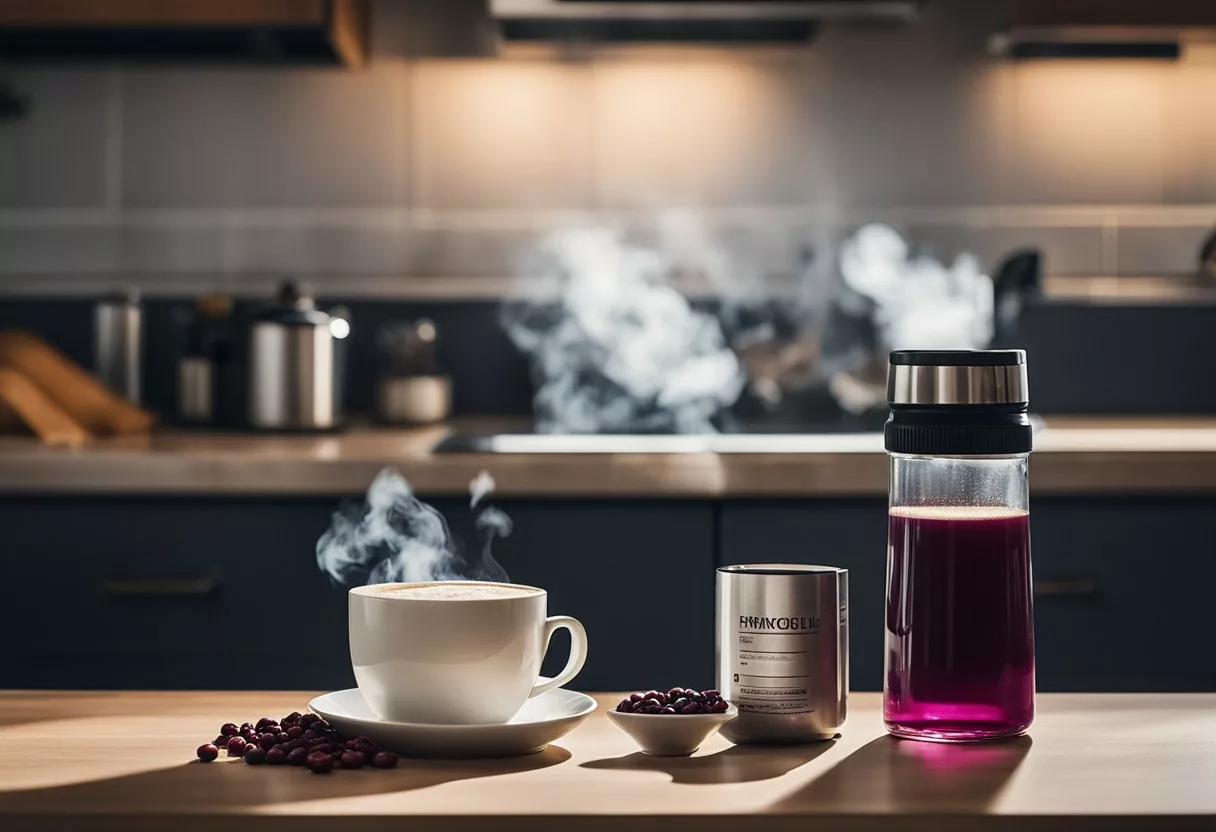When dealing with a urinary tract infection (UTI), many wonder if their beloved cup of coffee might be doing more harm than good. Drinking coffee while having a UTI is generally not recommended. The caffeine in coffee acts as a diuretic, which can lead to increased urination and possibly more irritation for the already sensitive urinary tract.

Hydration is key when managing a UTI, but it’s crucial to choose the right fluids. Water and electrolyte drinks are your best options, as they help flush out bacteria. In contrast, coffee can irritate the bladder and potentially worsen symptoms due to its acidic nature and caffeine content.
For those struggling to give up their morning ritual, there are alternatives to consider. Non-caffeinated herbal teas can offer a soothing start to the day without aggravation. By understanding the impact of diet on UTIs, one can make informed decisions to aid in a quicker recovery.
Understanding UTIs

Urinary Tract Infections (UTIs) are a common health issue affecting the urinary system, including the bladder, urethra, and kidneys. Knowing the causes, signs, and treatment options can help manage and prevent these infections effectively.
Causes and Risk Factors
UTIs are primarily caused by bacteria entering the urinary tract. The most common bacteria involved is Escherichia coli (E. coli), which normally lives in the intestines. Women are at a higher risk due to their shorter urethra, which allows easier access for bacteria.
Other risk factors include sexual activity, certain types of birth control, menopause, and a weakened immune system. Poor personal hygiene can also increase the risk. Additionally, blockages in the urinary system, such as kidney stones or an enlarged prostate in men, can contribute to UTIs.
Signs and Symptoms
Common symptoms of UTIs include a strong, persistent urge to urinate, and a burning sensation during urination. The infection can cause cloudy or strong-smelling urine. People may also notice blood in the urine.
Pain in the lower abdomen or back, specifically around the bladder or kidney areas, is another symptom. Increased urgency and frequency, even with small amounts of urine, are typical signs. Severe infections might result in fever and chills if the kidneys are affected.
Diagnosis and Treatment
Diagnosis typically involves a urinalysis, where a urine sample is tested for bacteria, blood, or pus. A urine culture may be done to identify the specific bacteria causing the infection. In recurrent cases, imaging tests like ultrasounds or CT scans may be needed to identify any abnormalities in the urinary tract.
Treatment usually includes a course of antibiotics to kill the bacteria. The specific antibiotic and length of treatment depend on the type of bacteria and severity of the infection. Drinking plenty of fluids, especially water, helps flush out the bacteria. It’s important to complete the prescribed antibiotic course even if symptoms improve to ensure the infection is fully eradicated.
The Impact of Diet and Beverages on UTIs
Making certain dietary choices can significantly affect the symptoms and recovery from a urinary tract infection (UTI). Drinking plenty of fluids helps flush out bacteria, and some foods and drinks can either worsen or relieve symptoms.
Role of Hydration
Staying hydrated is essential when dealing with a UTI. Drinking plenty of water helps to flush out bacteria from the urinary tract. This reduces the concentration of bacteria and minimizes their ability to cause infection.
Cranberry juice is often recommended, as it may help prevent bacteria like E. coli from sticking to the bladder walls. Drinking at least 8 glasses of water daily is advised to maintain proper hydration and reduce the risk of dehydration, which can aggravate UTI symptoms.
Foods and Drinks to Avoid
Certain foods and drinks can irritate the bladder and worsen UTI symptoms. Caffeine, found in coffee and tea, increases urination frequency and can irritate the bladder lining. Alcohol and sugary beverages should also be avoided, as they can further inflame the bladder.
Spicy foods and acidic fruits like lemons and oranges can also irritate the bladder. It’s sensible to avoid these foods to minimize discomfort. Artificial sweeteners, found in diet sodas, may have a similar effect and should be limited.
Beneficial Dietary Choices
Incorporating beneficial foods and beverages can aid in managing UTI symptoms. Probiotics such as plain Greek yogurt and fermented foods like sauerkraut introduce “good” bacteria into the body, which can help combat bad bacteria.
Consuming water-rich vegetables like cucumbers and celery helps maintain hydration. Foods high in Vitamin C, like bell peppers, can make urine more acidic, potentially reducing bacterial growth.
Electrolyte drinks can also be helpful in maintaining proper hydration levels. These choices support the body’s natural defenses and help manage UTIs more effectively.
Specifics about Coffee and UTIs

Coffee, especially due to its caffeine content, can influence bladder behavior and potentially exacerbate symptoms for individuals with a urinary tract infection (UTI). This section provides detailed insights into how coffee affects the bladder and the possible risks it poses to UTI sufferers.
Coffee’s Effects on the Bladder
Coffee contains caffeine, which acts as a stimulant. Caffeine can affect the bladder by causing bladder contractions. This may increase the urge to urinate frequently. Additionally, coffee has a diuretic effect, leading to more urine production and potentially making one need to urinate more often.
The acidity in coffee can also play a role. It may cause irritation in the bladder lining. This irritation can result in discomfort, especially for those who are already experiencing symptoms from a UTI. Therefore, drinking coffee may lead to increased bladder irritation and discomfort.
Potential Risks for UTI Sufferers
For individuals with a UTI, excessive coffee consumption can aggravate symptoms. One key risk is increased urination frequency. Since a UTI already causes a frequent urge to urinate, adding the diuretic effect of coffee into the mix can worsen this symptom.
Another risk is bladder irritation. Caffeine and the acidity in coffee can irritate the bladder lining. This irritation can make other UTI symptoms, like burning during urination, more intense.
It’s advisable for those with UTIs to avoid caffeinated drinks, including coffee. Instead, they should focus on drinking more water. Staying hydrated can help flush bacteria out of the urinary tract without adding irritation or increased urgency. Avoiding coffee may help reduce the intensity of UTI symptoms and promote a more comfortable recovery.
